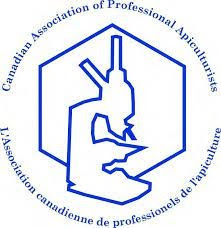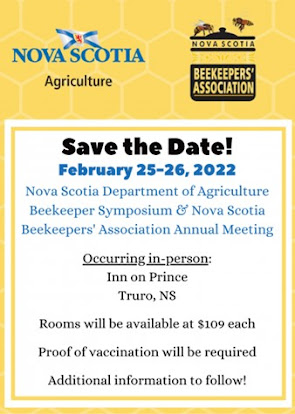News on upcoming industry meetings! Get your calendar ready and keep reading to find out what dates to save and where to keep an eye out for more information to come on these approaching events!
2021 CAPA AGM – November 4/5th, 2021
The Canadian Association of Professional Apiculturists is our national governing body of beekeeping, and this group works collaboratively to “study, educate and administrate in the field of apiculture and pollination”. Under this umbrella, CAPA members are engaged in various aspects of apiculture, including honey bee regulations, research and inspections, statistical oversight, quality inspection of hive product, conservation efforts for native bee species, and working towards ensuring the Canadian apiculture industry continues in a sustainable manner. An example of the excellent work of CAPA that will be familiar to most beekeepers is the Annual Colony Loss Report.This year’s CAPA AGM included many updates and announcements shared over the two-day event. These included presentations from top honey bee researchers, the Canadian Honey Council (CHC), tech transfer teams, and more! There was some especially exciting news that, with the addition of a new tech transfer team in BC, for the first time Canada now has apiculture tech transfer programs in place across the breadth of the country!
In addition to the shared updates and reports from representatives of each tech transfer program across Canada, provincial apiarists (PAs) also reported on the 2021 beekeeping season in their respective provinces. The PAs from the Atlantic provinces provided an overall positive report on the past beekeeping season with some concerns over varroa mite levels. Other provinces saw variable beekeeping seasons with some reports of severe draughts effecting honey bee colonies. Similar to the tech transfer teams, this is an important opportunity for provincial apiarists to not only advocate for their own provincial beekeeping industries but also to provide support to other provinces in the case of common concerns and sustainability efforts.One such common concern among provinces, and also relating to sustainability efforts, is the matter of varroa mite management. There is a perceived need to work towards more sustainable pest management strategies to control the number one pest of honey bee colonies more effectively. It makes much more sense for professional apiculturists from all provinces concerned to work collaboratively towards addressing this concern. Knowledge sharing is valuable!
Speaking of knowledge transfer and staying connected, it is always great to hear from our American counterparts. CAPA members were joined this year by Apiary Inspectors of America (AIA) President, Kim Skyrm. The AIA is similar to CAPA in that, “The AIA goal is to provide accurate and helpful information for the successful management of honey bees, while seeking new information and ideas in honey bee management and plant pollination." One neat tool that AIA has supported is the creation of an online map point logging system (MiteCheck Survey) where beekeepers become citizen scientists and submit their mite levels for the purpose of visualizing the geographic distribution and severity of varroa mite infestations across North America. For more information about what the AIA is and what they have been up to, check out their website HERE.
This year, CAPA AGM attendees also heard from Judy Wu-Smart from the American Association Professional Apiculturists, who spoke on the ongoing environmental crisis at an ethanol plant located in Mead, Nebraska. At the plant, ethanol is produced using waste agricultural seeds that have various fungicide and insecticide coatings. Leaching from these improperly stored seeds creates a waste by-product laced with seed coating products, which is allowed to enter the broader environment. The effects of this environmental contamination are being seen by beekeepers and negatively impacting colonies in the area. The Sierra Club, Nebraska Chapter is working to put an end to this and inform others on this environmental disaster to hopefully avoid future cases. For more information on this situation, check out the Sierra Club’s website, HERE.
Save the Date - Upcoming AGMs
Nova Scotia:
For more information see the NSBA website, HERE.
Prince Edward Island:
For more information, see contact information below.PRE-REGISTRATION FOR THIS EVENT IS NECESSARY. In order to safely adhere to the maximum
number of participants as outlined in Provincial meeting guidelines, all participants (in-person or
online) have to pre-register for this event by Tuesday, December 7th by contacting our office at
902-268-7289 (call), joann@peifa.ca (email) or 902-314-8465 (text)
Connecting with ATTTA Specialists
If you’d like to connect with ATTTA specialists or learn more about our program, you can:
visit our website at https://www.perennia.ca/portfolio-items/honey-bees/
Email abyers@perennia.ca



